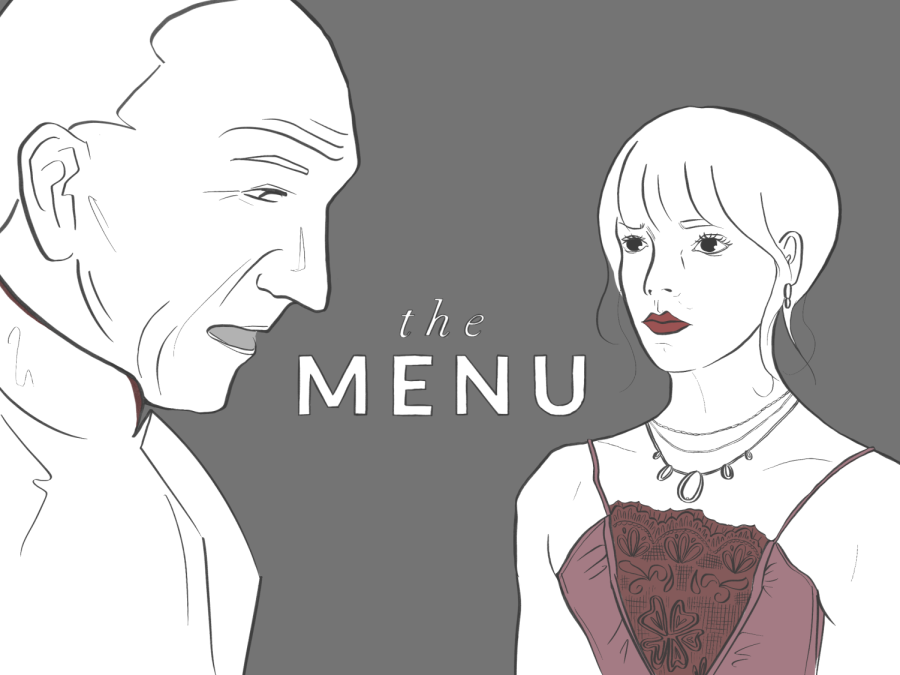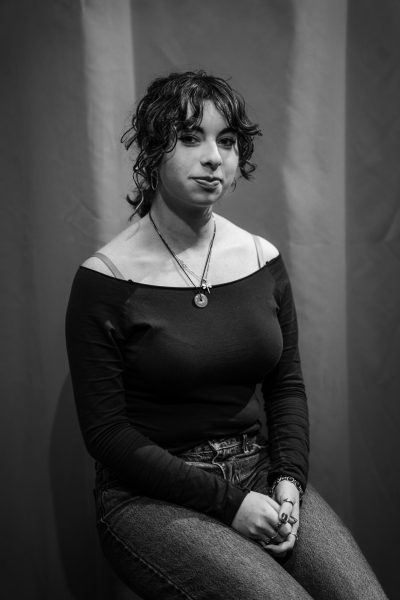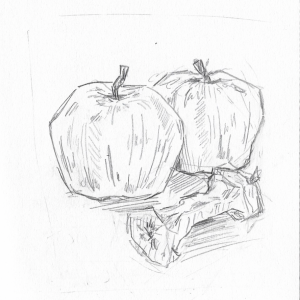The Menu is a Delectable Class Commentary
5/5 Falcons
January 22, 2023
Disclaimer: Slight Spoilers Ahead!
Anya Taylor-Joy and Ralph Fiennes shine in new psychological thriller The Menu, delivering dramatic yet nuanced performances as a mysterious young diner and an acclaimed chef, respectively. The film begins with a couple, Tyler (Nicholas Hoult), and his paid escort, Margot (Anya Taylor-Joy), preparing for a fine dining experience at Hawthorne, a famed restaurant located on a remote island that cost Tyler over a thousand dollars to attend.
They are joined by nine other guests, who introduce comedic subtlety through their archetypal circumstances: a harsh food critic and her submissive assistant, a movie star slowly exiting the spotlight and his ambitious assistant, an wealthy elderly couple who frequent Hawthorne, and a trio of new-money Silicon Valley young men. But, as the dinner progresses, the meals and setting become strange and violent.
The very setup of The Menu presents an unexpectedly nuanced commentary about class dynamics. The physical layout of the restaurant separates the wealthy and the workers, those who pick apart the caviar and those who labor over its art. While the chefs cook, the guests witness spectacles arranged by the chefs, ranging from an informative presentation about the significance of bread in cultural cuisine to the gruesome suicide of a sous chef who was burdened by the idea of failure and permanent inferiority to Chef Julian (Ralph Fiennes).
The operation is almost military; the chefs work day and night and sleep on the premises in side-by-side bunkers. They acknowledge the chef like a superior officer, shouting “Yes chef!” in a striking, cult-like chorus, to his increasingly sinister demands. While the chefs seem sinister and emotionless at times, the guests are fueled by entitlement, fear, and anger, making them all the more real. The Menu doesn’t force its audience to hate the guests, instead providing a morally gray lens through which the viewer may view and critique the characters’ actions throughout the film.
The uneasy tone of this dark comedy is also set by the spectacle surrounding each course. Chef Julian works to serve the wealthy, which he detests, and compensates for by ridiculing, taunting, and exerting power over his elite diners through the meals and the story surrounding each dish. The food itself is his horror-movie type weapon.
Humor is juxtaposed by genre-typical deadly games. In no way are these thriller elements cliche, with quick exchanges and battles of wit prevailing, further highlighting the dynamic between the chef and his guests. The unwavering pace of events and the intensity of characters only heighten the intensity, making it a truly engaging, terrifying, and at times hilarious watch. The combination of thriller and comedy can be hard to perfect, but The Menu is not afraid to walk that line and make the watcher both laugh at well-timed bits and grimace at horrifying and occasionally graphic twists.
The Menu delivers on all fronts. Creativity takes the form of not only the story itself, but in how the dishes tie into the narrative. You don’t have to be a food lover to enjoy The Menu— the writing itself is witty and packed with humor of every flavor, and the acting prowess of Taylor-Joy, Fiennes, Holt, and others serves well to elevate the movie. This movie is spectacular from its passive beginning, right up to its dramatic and thought-provoking ending.












